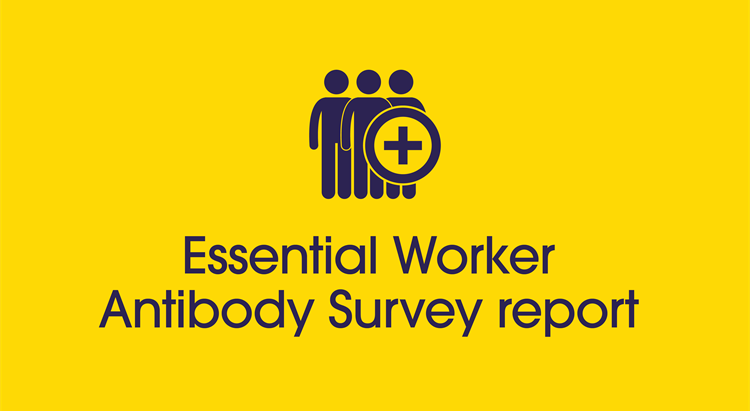14 July 2020

The Essential Worker Antibody Survey of almost 8,000 people found that around 4% tested positive for COVID-19 antibodies, and more than half of the people who had antibodies reported no symptoms.
As part of the Government of Jersey’s response to the COVID-19 pandemic, the Essential Worker Antibody Survey was conducted between 21- 29 May and 1 – 7 June. The survey invited those who have worked away from home throughout the Stay at Home period to take a pinprick serology test to reveal whether antibodies were present, indicating a past infection with coronavirus.
Deputy Medical Officer of Health Dr Ivan Muscat said: “The survey was designed to provide a snapshot of COVID-19 infection across key groups which were considered to be at higher risk of exposure. We have found that more than half of those with a positive result for the presence of antibodies reported no symptoms. This information is in keeping with recent estimates of asymptomatic infection in other jurisdictions”.
Key findings from the report show:
- 300 out of 7,850 essential workers tested returned a positive antibody result
- Just over half of those with a positive result reported no symptoms
- A total of 7,850 individuals were tested
- No differences were shown between male or female samples
- No differences were shown between different age groups
- Results do not show a correlation of infection rate with the number of days worked
- No significant differences were shown between different employment sectors
The Chief Minister, Senator John Le Fondré, said: “This has been a valuable process which provides useful data on how this virus is affecting the Island. It’s encouraging that the results suggest no great difference with the Community Testing Sample that Statistics Jersey have run. I want to thank all those employees across sectors who took part in the tests and thank every essential worker for their dedication and resilience throughout the Stay at Home measures.”
This survey does not offer a statistically representative sample of all essential workers in Jersey but should be considered for analysis alongside the Community Testing Sample which provides a robust estimate of population infection prevalence.